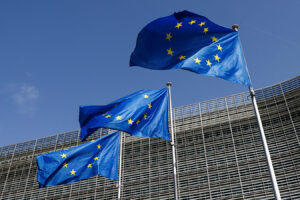By Justine Irish D. Tabile, Reporter
THE Philippine utilization rate in the European Union’s (EU) Generalized Scheme of Preferences Plus (GSP+), a scheme to admit Philippine goods tariff-free, hit a record 80% last year, according to the EU Ambassador to the Philippines.
“In the previous year we already had high levels, but we were only around 77%, 75%, and 73%, so 80% was the highest; it is the record so far, and that is for 2024,” Ambassador Massimo Santoro said on the sidelines of a forum organized by the Makati Business Club on Tuesday.
“This is very good because basically almost 7,000 products from the Philippines entered the EU market tariff-free,” he added.
For 2025, he said that the goal is to at least match the 80% record.
“We are very happy, from the European side, when the Philippines makes the best use of this system of preferences,” he added.
He added that it is important to speedily conclude the negotiations for the EU-Philippines free trade agreement (FTA), without compromising quality, in the face of the new US tariff measures.
“I am pretty sure that also in light of this geopolitical dimension, related to the tariffs, etc., the FTA negotiations cannot but become more important and cannot but continue at an even higher pace,” he said.
“Of course this depends on the goodwill of both sides, but it’s clear that… we cannot but multiply the occasions to reduce to zero these tariffs,” he added.
However, he said that despite the willingness to accelerate the negotiations, it is difficult to estimate a firm date for talks to wrap up.
“I can say that the key objective remains to achieve a final result that gives real added value to business on both sides,” he added.
He said that the FTAs being negotiated by the EU with its other partners are similar in structure but noted that the EU is interested in inserting a digital trade chapter in its FTA with the Philippines.
“Previous FTAs do not have this digital chapter … The digital chapter is something that gained in importance and speed most recently,” he said.
“So it is natural that this is a chapter not present in other FTAs because these FTAs were concluded before, in a moment where the digital was not such a fundamental element,” he added.
He said the digital chapter is important for the Philippines, being an archipelago where infrastructure is an important consideration.
“I am not saying that digital fills the gap in the infrastructure, but it definitely becomes an important enabler when it is about situations where the infrastructure is not there or when we want to improve services and access,” he said.
“So this is why we thought about having this digital chapter in this FTA,” he added.
The EU and the Philippines have staged two rounds of negotiations starting in October. The third round is set to take place in June.

